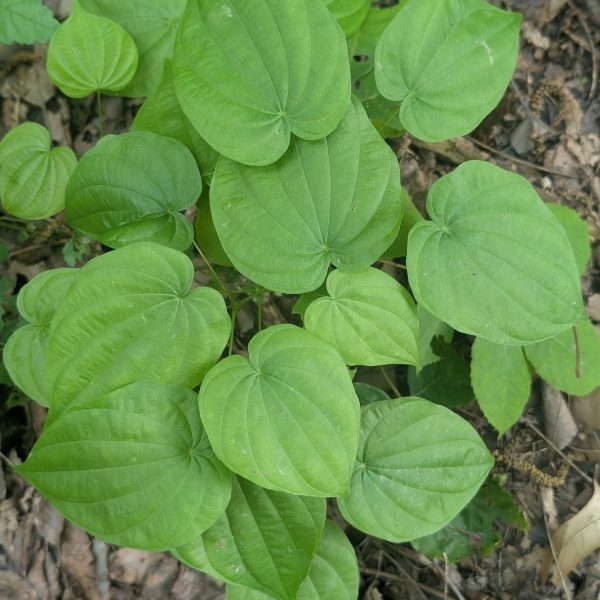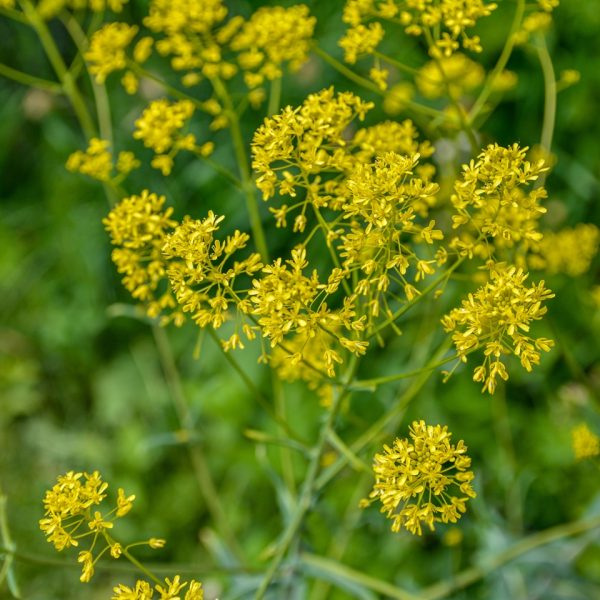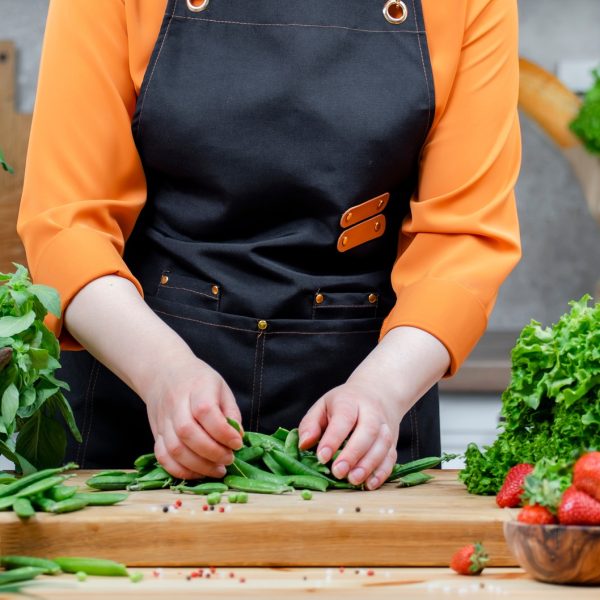
The vegetarian world is a colourful, nutritious and exciting place; perhaps more than you might think. Read on to discover more.
Although not for everyone, the vegetarian world is a colourful, nutritious and exciting place; perhaps more than you might think. Read on to discover more.
I love being vegetarian. It tastes good, makes me feel good and helps me feel a part of a caring world. Its in my blood. My grandparents were pacifist vegetarian Quakers. My Mum had a brief relapse which meant I did too but then, after visiting India and living in America for a while I fell back within the fold. I am not saying it is the right choice for everyone but secretly believe it is. In my early days of recently converted over-zealous youthful enthusiasm I verged on the side of extremist. I even asked my most red-blooded Alpha male friend to not cook bacon in his own house. Not a good move! I am more accepting now. A bit…
When I am asked why am I vegetarian I say ‘for every reason that there is to be’; environmental, moral, health, financial, spiritual and (now I know how to cook) because it’s so utterly delicious.
Environmental reasons to be vegetarian

Environmentally vegetarianism is more sustainable Its that simple. The livestock industry is one of the largest contributors to environmental damage. It takes 7 Kg of grain to produce 1 Kg of red meat and 2 Kg grain to produce 1Kg of poultry. One quarter of the earth’s surface is now pastureland to support livestock. ¾ of all grains and beans grown in the US are destined for animal feed which would feed 800million people. The livestock industry uses 50% of all US water resources. These easily could be used to satisfy humans nutritional needs.
It is estimated that 50% of the world’s rainforests have been cleared to support livestock for the meat industry. And 70% of the world’s fish populations are threatened by over fishing. The livestock industry (meat, dairy, poultry, fisheries) contributes towards 17% of greenhouse gases (Transportation is 13.5%). All these figures means that it takes ten times more resources to get our nutrition from meat as from grains. Whilst not an absolute answer to the earth’s environmental problems (as modern farming techniques as a whole need to be addressed) becoming a vegetarian is THE single most influential impact that an individual can have on the environment.
The amoral choice

I don’t think that being a vegetarian makes you ‘absolutely’ a better or more moral person, but I do think it makes you relatively better. I mean, why would we kill another animal when we can get plenty of nutrition from plants? Of course, if you think we are superior to other animals then maybe that is your answer. Why would we impose such fear and pain on another animal if we don’t have to? If you have ever visited a battery chicken farm or seen cattle slaughtered at an abattoir you will know what I mean. However hard they try all meat eaters end up eating this sort of mass processed meat because that is what is generally available in restaurants. Fortunately I have chosen to be vegetarian. I don’t live in the Khalahari desert and ‘need’ animal flesh to support me and my family. I live in the UK where vegetarian options are plentiful.
It’s about a choice. The very nature of our existence means that we kill all the time; washing our hands destroys millions of bacteria, driving a car kills lots of insects, digging the earth kills lots of worms. So to live we must kill. But to live consciously we do not need necessarily have to eat another being. It’s a balance.
For me, this is the intention. To try and live a life that causes no other beings intentional pain. This is the yogic attitude known as ahmsa or non-violence. Of course I trip up. Ask my calm but chicken loving-wife about my occasional lapse of sense of humour. But in essence the intention of vegetarianism induces a moral code by which I can attempt to live.
Health

The health reasons to be vegetarian are legendary. Of course, it is about what is appropriate for each individual but generally speaking vegetarians suffer less heart disease, diabetes, cancer (breast, bowel, prostate, pancreatic), hypertension, gall bladder problems, obesity and osteoporosis than non-vegetarians. Vegetarians also make less visits to their GPs and spend less time in hospital (about 22% less than the meat eater). Sounds like a good opportunity for a tax break and an insurance premium! Although it is very easy to eat an ‘unhealthy’ vegetarian diet of white bread, loads of cheese and processed foods. You can still be a meat eater and include high levels of these healthy foods (in fact I would recommend it). Eating a healthy vegetarian diet means that you comply with the government recommended levels of fruit, vegetable, whole grain, fibre and low saturated fat consumption. These volumes of vegetarian foods also contain a high amount of various ‘super-nutrients’ such as protective anti-oxidants, healing phytochemicals and essential micronutrients.
Ayurveda considers that different foods have different qualities that effect the make-up of our mind and body. You are what you eat and all that. Ayurveda divides all of nature into three qualities called sattva, rajas and tamas. Sattva refers to qualities of balance, equality, stability. It is light and luminous and holds the capacity for happiness. It is conscious and intelligent, moving inwards and upwards. Think Gandhi, Mother Teresa, sunrise, hugs and meditation. Rajas generates activity, change and disturbance. It is mobile and excitable. It is the motivator and expressor. It has a centrifugal force causing dispersion and disintegration. Think Led Zeppelin, volcanoes, arguing and Saturday night in the pub. Tamas is the immobile, still and stuck quality. It is heavyand causes obstruction or lack of perception. It moves down and is responsible for degeneration. Through the force of tamas there is delusion and confusion. Think being lazy, night time, hangovers and Boxing day.
Generally speaking vegetables, fruits, nuts, grains and milk (organic) are considered to be sattvic and increase awareness, meat is considered to be rajasic and increasing the passions and processed foods are considered to be tamasic.
When not to be a veggie
There are a few good reasons not to be vegetarian. Anyone who is undernourished or recovering from a debilitating illness is a candidate for a bit of chicken soup. New mums often need a bit of extra protein. If you do eat meat keep the portions low to about 30g a couple of times a week and insist on organic.
The traditional view of vegetarianism

Indian culture has been associated with vegetarianism (Hinduism, Buddhism and Jainsim all support vegetarianism) from antiquity and it was prevalent in Greece around 6th century BCE. The rise of Christianity wiped vegetarianism from Europe and its green shoots did not reemerge with significance until the 19th century. From the traditional medical point of view Ayurveda is primarily but not wholly vegetarian. Ayurveda is a science in pursuit of health. It is not a moralistic system, although morality does creep into its practices. If someone’s health can benefit from the properties of eating some animal meat, then this is recommended. Ayurveda would understand that there is some karma, or effect, from using animal products, but argues that the health of the individual is paramount. That being said it does recommend a primarily vegetarian diet that is easy to digest. In accordance with Ayurvedic principles it would also encourage an awareness of one’s actions and there is little doubt that the massive impact of the meat industry on the environment, economy and health of society would influence the opinion of the original propounders of Ayurveda.
Any vegetarian who has visited a Chinese medicine practitioner will know what they think. Chinese medicine likes people to eat meat to build the strength of the blood, qi and tissues. Whilst it can help some people regain certain aspects of health when needed it reveals Chinese medicine’s interest in the quantitative approach (how much one is getting) versus Ayurveda’s qualitative (the essence of what one gets) approach to health.
Top tips for being a health vegetarian

I have seen too many unhealthy vegetarians in my clinic. It is essential for vegetarians to eat an especially healthy diet and supplement their diet with super tonics. This takes a fair bit of effort; soaking, boiling and kneading….but its fun and has results. You MUST eat lots of whole grains, pulses and nuts. Include seaweeds and herbs in your diet. Ginger, turmeric and coriander are essentials. In both India and China it is a tradition to make herbal decoctions and boil rice and vegetables in them. Try making teas of astragalus and boiling rice in this, add goji berries to porridge, mix amla berries into soups. Definitely take chywanaprash which is a super herbal tonic jam. Where appropriate, use rejuvenating herbs such as ashwagandha, shatavari, Aloe vera juice and the ginsengs. Make sure you are getting the correct balance of healthy oils, especially Omega-3 to Omega-6s (it should be a 1:2 proportion). Vegetarian sources of Omega-3 do not convert to DHA and EPA very well and so keep your levels of hemp and flax seed high. Ayurveda recommends taking ghee (clarified butter) with food (2 tsp/day) to nourish the tissues. I would recommend supplementing with a wholefood multi-vitamin as well.
Try this for breakfast…
Ingredients
- 100g rice pudding rice (You can also try with black or red rice)
- I litre of cow’s, almond, coconut or rice milk
- 3 tbs almond powder
- 7 strands of saffron
- 5 cardamom pods
- Rose Jam or water
- Ghee, hemp seed or honey, optional
Method
- Place the rice in a heavy pan and add the milk. Bring to boil and simmer for 1 hour. Add the almond powder. Add more milk as desired. (coconut milk is an interesting change).
- Soak the strands of saffron in a tablespoon of milk for 10 minutes to extract its golden pigment and then add to rice pudding. Add cardamom and rose jam. Serve and add ghee or honey as desired.
- You can also add grated carrots or beetroots to this recipe for a colourful and nourishing variation. Also try with roasted walnuts, hazelnuts or raisins or goji berries.
This is a very nourishing food for strengthening the tissues and building deep strength.
Spiritual reasons to be a vegetarian
At the very heart of being a vegetarian is its spiritual quality. Spiritual in the sense of connecting with that part of life that honours all beings as being an expression of the unconditional love that we all are. Spiritual in the sense of slightly removing oneself from the material world to a more contemplative place where you can reflect on who you are and what you are doing here. Spiritual in distinction to material flesh. I am sure that many enlightened yogis have eaten meat so lets not get too high and mighty about this ‘spiritualism of vegetarians’ but some of us need all the help we can get! If you want it to be vegetarianism can be a part of your spiritual practice.
Blessings to you all. Blessings to the plants. Blessings to the animals. Blessings to the earth.
References
- Burr, M & Butland, B. (1988) Heart disease in British vegetarians. Am Jnl Clinical Nutrition v.48 p.830-2.
- Claude-Chang, J et al. (1992) Mortality pattern of German vegetarians after 11 years of follow-up. Epidemiology v.3 (5) p.395-401.
- Cummings, J & Bingham, S. (1998) Diet and the Prevention of Cancer BMJ v.317 p.1636-1640.
- Doll, R. (1990) Symposium on diet and cancer. Proc of the Nutrition Society v.49 p.119-31.
- Dwyer, J T. (1988) Health aspects of vegetarian diets. Am Jnl Clinical Nutrition v.48 p.712-38.
- Gale, Catharine R; Ian J Deary, Ingrid Schoon, G David Batty, G David Batty (2006-12-15). “IQ in childhood and vegetarianism in adulthood: 1970 British cohort study”. British Medical Journal 333 (7581).
- Key, T J. et al. (1999) Health Benefits of a vegetarian diet. Proceedings of the Nutrition Society v.58 p.271-5.
- Margetts, B M et al. (1986) Vegetarian diet in mild hypertension: a randomised controlled trial. BMJ v.293 p.1468-71.
- Marsh, A G et al. (1988) Vegetarian lifestyle and bone mineral density. Am Jnl Clinical Nutrition v.48 (3) p.837-41.
- Sellmeyer, D E et al. (2001) A high ratio of dietary animal to vegetable protein increases the rate of bone loss and the risk of fracture in postmenopausal women.
- Am J Clin Nutr 2001; 73:118-22. Spencer, Colin: The Heretic’s Feast. A History of Vegetarianism, London: Fourth Estate 1993,
- Thorogood, M et al. (1994) Risk from death from cancer and ischaemic heart disease in meat and non meat-eaters.
- BMJ v.308 p.1667-1671.
- Thorogood, M et al. (1987) Plasma lipids and lipoprotein cholesterol in people with different diets in Britain.
- BMJ v.295 p.351-3.
- Vesterby, Marlow and Krupa, Kenneth S. 2001 Major Uses of Land in the United States, 1997 Statistical Bulletin No. (SB973) September 2001.
- LEAD digital library: Livestock’s long shadow – Environmental issues and options.
- Walters, K and Portmess, L, Religious Vegetarianism From Hesiod to the Dalai Lama, Albany 2001.
- Willett, W C et al. (1990) Relation of meat, fat and fibre intake to the risk of colon cancer in a prospective study among women.
- New England Jnl of Medicine v.323 p.1664-72.
- World Health Organisation (1990). Diet, nutrition and the prevention of chronic diseases. WHO, Geneva.
































